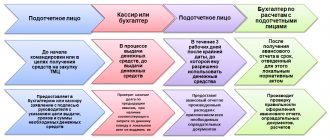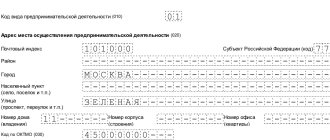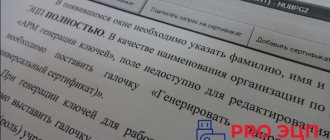Law No. 54-FZ, regulating the use of cash registers, has undergone changes and on July 3, its updated version was released - as amended by Law No. 192-FZ dated July 3, 2018. Let's look at the key amendments contained in it.
Let's start with the fact that the very name of 54-FZ has changed and now it is “ON THE APPLICATION OF CASH CONTROL EQUIPMENT WHEN CARRYING OUT SETTLEMENTS IN THE RUSSIAN FEDERATION”, i.e. implies all calculations, and not just “... when making cash payments and (or) payments using electronic means of payment”, as was previously the case.
Before reading the comments on the changes to 54-FZ on online cash registers, we advise you to study the text of Law 192-FZ of July 3, 2018 in any legal system, for example, Consultant Plus - LINK.
Changes effective July 2018
Legislation in the field of application of online cash register technology is constantly changing. The latest adjustments came into effect only recently. The current version of the law “On the use of cash registers...” No. 54-FZ - dated 07/03/2018 - has introduced a number of changes to the procedure for using online cash registers by businessmen engaged in various types of activities. Moreover, the amendments made to the law apply not only to those who are still planning to switch to updated cash register equipment, but also to those who are already working with it.
The main issues covered in the updated law:
- The concept of “calculations” is more clearly formulated.
- The deadline for the transition to online technology for certain categories of taxpayers has been postponed.
- Some businessmen were released from CCP.
- The obligation to use online technology when repaying loans has been determined.
- The actions of the seller in the event of a breakdown of the fiscal drive (FN) have been clarified.
- The deadline for receiving a registration card has been extended.
- The rules for deregistering a cash register with the tax authorities have been changed.
- The required details of the KKM check have been adjusted.
Let's look at these innovations in more detail.
Who is not required to use the new cash registers?
There is no need to switch to the new system if you:
- do shoe repairs
- sell soft drinks from tanks
- sell goods in undeveloped markets
- rent out your own home
- sell ice cream
- credit organizations
- securities companies
- religious organizations
- conductors in public transport
- food factories at educational institutions
- organizations and individual entrepreneurs working in hard-to-reach areas and included in the appropriate register
Online cash register, cash and non-cash payments
One of the most important changes enshrined in the updated version of Law 54-FZ is as follows: from the concept of “calculations”, the definition of which is given in Art. 1.1 of this regulatory act, the phrase “electronic means of payment”, which previously raised many questions and disputes, is excluded.
Now payments mean both cash and non-cash payments. In this regard, the name of the law itself was adjusted:
| Changes | Revision dated 07/03/2016 | Revision dated 07/03/2018 |
| Name of the law | On the use of cash register equipment when making cash payments and (or) payments using payment cards | On the use of cash register equipment when making payments in the Russian Federation |
| Definition of “calculations” | Settlements - acceptance or payment of funds using cash and (or) electronic means of payment for goods sold, work performed, services provided, acceptance of bets and payment of funds in the form of winnings when carrying out activities related to organizing and conducting gambling, as well as acceptance of funds funds when selling lottery tickets, electronic lottery tickets, accepting lottery bets and paying out funds in the form of winnings when carrying out activities related to organizing and conducting lotteries. | Settlements - acceptance (receipt) and payment of funds in cash and (or) by bank transfer for goods, work, services, acceptance of bets, interactive bets and payment of funds in the form of winnings when carrying out activities related to organizing and conducting gambling, as well as acceptance of funds when selling lottery tickets, electronic lottery tickets, accepting lottery bets and paying out funds in the form of winnings when carrying out activities related to organizing and conducting lotteries. For the purposes of this Federal Law, settlements also mean the acceptance (receipt) and payment of funds in the form of advance payment and (or) advances, offset and return of advance payment and (or) advances, provision and repayment of loans to pay for goods, works, services ( including pawnshops lending to citizens on the security of things belonging to citizens and activities for storing things) or providing or receiving other consideration for goods, work, services. |
This means that the obligation to use online technology when selling goods or services arises regardless of how buyers pay for them.
When transferring funds from the payer's settlement account to the settlement account of the recipient-individual entrepreneur (or legal entity), there is no need to punch a cash receipt.
This rule is now fixed in relation to advance payments: if a client (individual, entrepreneur or company) makes an advance payment in cash (or by card) to the cash desk, the check must be punched. In this case, it can be sent to the client by e-mail or phone in electronic form.
If a citizen buyer made a non-cash payment without contacting the seller, for example, through an operator in a bank or online store, the check must be punched no later than the next day (but before the goods are transferred), and also “handed over” to the client in one of the following ways:
- send electronically if the buyer’s contacts are known;
- send a paper version of the receipt along with the goods;
- hand over a paper check at the next interaction with the client.
The next nuance that needs to be addressed concerns situations when an individual demands the seller to return the overpayment for services provided (their list is given in subsection 2.1 of Article 1.2 of Law No. 54-FZ) or if advances made for these services are offset.
| List of services from sub. 2.1 Art. 1.2 of Law No. 54-FZ |
| · services in the field of cultural events; · transportation services for passengers, luggage, cargo and cargo luggage; · communication services; · services in electronic form, specified in Art. 174.2 of the Tax Code of the Russian Federation (provision of services by foreign organizations in electronic form; · other services determined by the Government of the Russian Federation. |
In these cases, the seller has the right to generate one cash receipt (or BSO) indicating data on all such payments for a period not exceeding a month: per day, week, decade, etc. Such a consolidated document will be transferred to the tax authorities for control purposes.
And the last innovation that is worth dwelling on: settlements now include the provision and repayment of loans aimed at paying for goods, works, and services (including lending to citizens by pawnshops). However, until July 1, 2019, when providing such loans to citizens who are not individual entrepreneurs, online cash register systems are not allowed to be used.
Correction check - official
The new edition of Law No. 54-FZ provides an official definition of a cash receipt for correction. In principle, it corresponds to what was actually stated in the explanations of officials, but its consolidation at the level of federal legislation is an event that deserves attention.
In accordance with the new paragraph 5.1 of Article 4.3 of the law, a cash register receipt of correction (or BSO correction) should be understood as a fiscal document generated for the purpose of fiscalizing previously made income or expenses that were not posted through the online cash register directly at the time of their commission (for example, in due to the fact that the online cash register was broken or could not be used due to a power outage). Thus, the excess revenue identified at the end of the shift, or, conversely, the shortage, is reflected through the correction check - using, respectively, the attribute “receipt” or “expense” on the check in the “account attribute” attribute.
The legislation does not provide for other conditions for the use of a correction check. To correct erroneous fiscalization transactions, regular checks should be used - using the appropriate “settlement attribute” details and accompanying ones.
Who was additionally exempted from the obligation to use cash register equipment?
According to the updated legislation, the list of business entities that have the right not to use online cash register systems has been expanded. Added to it (Article 2 of Law 54-FZ):
- Sellers of bottled water and milk.
- Sellers of goods through mechanical machines when paying exclusively with coins, for example, when selling chewing gum or shoe covers. In this case, a prerequisite is that the device cannot be connected to an electrical network, nor can it operate autonomously from batteries or rechargeable batteries.
- All credit organizations.
- Traders of paper magazines or newspapers.
- Peddling on board aircraft.
- Sales of insurance policies through citizen agents.
- Companies that provide parking spaces for a fee on public roads.
- Libraries (except private ones) providing paid services.
In addition, it is allowed not to issue a check or send its electronic equivalent to customers:
- For the transportation of goods, passengers or luggage when paying using a bank card, web wallet or other means of electronic payment;
- In case of sale of goods (except for excisable and technically complex ones) through vending machines with a serial number. Moreover, from 02/01/2020, these devices must display a QR code so that the buyer can scan the receipt on their smartphone.
Responsibilities of banking agents
Payment agents - intermediaries between the seller and the buyer, can operate in accordance with two main regulations - Law “On the National Payment System” No. 161-FZ (regulates the work of bank payment agents - those who operate on the basis of agreements with banks) and Law “On Acceptance of Payments by Tax Agents” No. 103-FZ (regulates the work of “simple” payment agents - that is, those who are not bound by agreements with the bank).
In the previous version of Law No. 54-FZ, the procedure for accepting payments by agents was regulated rather superficially: in paragraphs 3 and 4 of Article 4.7 there was only a list of a number of additional details for a cash receipt that must be used by agents. In the new edition of the law, there are noticeably more rules regulating the actions of agents when accepting payments - if we talk specifically about those agents who operate in the jurisdiction of Law No. 161-FZ.
Thus, in Article 1.2, a new clause 5.5 has appeared, according to which such agents, when making automatic payments, are directly ordered to issue checks to payers in paper or electronic form (if contacts for this are provided). Previously, such an obligation was established indirectly - from the general set of norms of the then valid version of Law No. 54-FZ.
The new version of Law No. 54-FZ also contains rules establishing a number of technological features of the cash register used by banking agents, as well as the procedure for determining the address of the place of settlement using such a cash register.
Other changes to the law “On cash register machines”
The updated law provides for a number of other innovations:
- From July 3, 2018, a cash register receipt must display a QR code.
- To correct erroneous information on a check, use a correction check. Previously, legislators recommended punching a check with the sign “return of receipt” and issuing a new one for the receipt.
- When the seller is liquidated, there is no longer a need to submit an application to the tax authorities to deregister the cash register. Now this is done automatically based on an extract from the Unified State Register of Legal Entities (USRIP).
- The period for issuing a cash register registration card has been increased from 5 to 10 days. Without it, it is prohibited to use KKM.
- The taxpayer's actions in the event of a breakdown of the fiscal drive (FN) are explained. First of all, within 5 days you should submit an application to the tax authorities to deregister the cash register or for re-registration. A non-working FN must be sent to the manufacturer for examination. If the reason for the breakdown of the FN is a defect, then the restored information must be sent to the tax authorities within 60 days from the date of filing the application for deregistration.
When issuing checks, pay attention to the methodological recommendations given in the letters of the Federal Tax Service of the Russian Federation dated 07/03/2018 No. ED-4-20/12718 (here we talk about sales for cash), dated 07/03/2018 No. ED-4-20/12717 (the letter is dedicated to payments with gift cards).
Fines for incorrect use of cash registers
In accordance with the updated law, the range of entities required to use online technology has significantly expanded since July 2021. Consequently, they are subject to sanctions for the lack of cash registers and their incorrect use.
Let's consider what fines await companies and individual entrepreneurs obligated to use online machines (clauses 2-6 of Article 14.5 of the Administrative Code):
| Type of violation | Amount of fine | |
| On officials | For legal entities | |
| Non-use of cash registers | From 25% to 50% of the settlement amount without using a cash register, but not less than 10 thousand rubles. | From 25% to 100% of the settlement amount without using cash register, but not less than 30 thousand rubles. |
| Repeated violation in the form of non-use of cash registers, if the total amount of settlements was 1 million rubles. and more | Disqualification from 1 to 2 years | Suspension of activities up to 90 days |
| Use of CCP that does not meet established requirements | From 1.5 to 3 thousand rubles. | From 5 to 10 thousand rubles. |
| Failure to provide information requested by tax authorities | ||
| Failure to issue a cash receipt | 2 thousand rubles. or warning | 10 thousand rubles. or warning |
Work on outdated cash registers by controllers is equated to work without cash register equipment (letter of the Federal Tax Service of the Russian Federation dated January 31, 2017 No. ED-4-20/1602), this will also be punishable.
The statute of limitations for the violations listed above is 1 year from the day the offense was committed (Clause 1, Article 4.5 of the Administrative Code).
What else
The tax office interprets the law
Now the Federal Tax Service is the same official body that provides written explanations to organizations, individual entrepreneurs and individuals on issues of Russian legislation on the use of cash registers. Simply put, the state has given the tax authority the right to interpret these laws.
OFD has the right to use user data
From July 3, the OFD can process the user’s fiscal data for research and statistics without depersonalizing such fiscal data (if this is established by the agreement for the processing of fiscal data) taking into account the requirements of the Federal Law of July 27, 2006 No. 152-FZ “On Personal Data.”
* The provisions of paragraph three of this paragraph do not apply to the personal data of the buyer or client.








